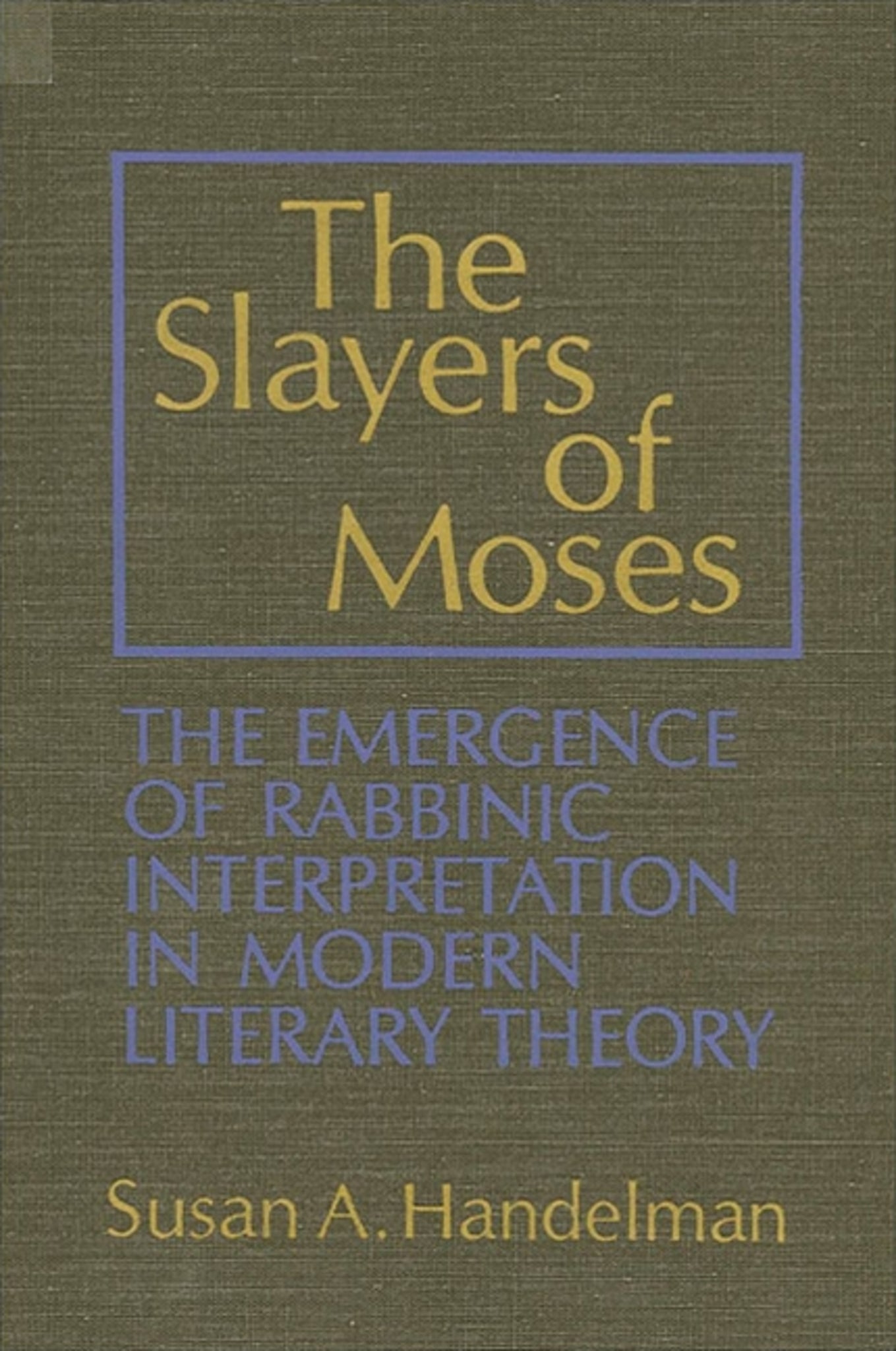We're sorry. An error has occurred
Please cancel or retry.
The Slayers of Moses

Some error occured while loading the Quick View. Please close the Quick View and try reloading the page.
Couldn't load pickup availability
- Format:
-
30 June 1983

In this groundbreaking study, Susan Handelman examines the theological roots of the modern science of interpretation. She defines current structures of thought and patterns of organizing reality, clearly distinguishes them from previously reigning Hellenic modes of abstract thought, and connects them with important elements of the Rabbinic interpretive tradition. Hers is the first comprehensive treatment of the undeniable, and undeniably significant, influence of Jewish religious thought on contemporary literary criticism. Dr. Handelman shows how they provide a crucial link among several of the most influential modern theories of textual interpretation, from Freud to the Deconstructionist School of Lacan and Derrida, as well as current literary theorists who revive Rabbinic hermeneutics, such as Harold Bloom and Geoffrey Hartman.


Acknowledgments
Methodological Preface
Note to the Reader
I. Historical Background: The Interpretive Agon of Greek, Jew, and Christian
1. Greek Philosophy and the Overcoming of the Word
Plato and Language: The Cratylus
Aristotle and the Problem of Predication
Aristotle: Words and Things, Rhetoric vs. Philosophy
The Contemporary Critique: Derrida and Ricoeur
The Model of Metaphor
2. Rabbinic Thought: The Divinity of the Text
The Bible and the Greeks
The Text
The Development of the Oral Law
3. Some Philosophic Aspects of the Rabbinic Interpretative System
Kal Ve-Chomer
The Other Twelve Middot: The Relations of General and Particular
Midrash
Metaphor and Metonymy in Interpretation
4. Escape from Textuality: The Fulfiller of Signs
II. The Slayers of Moses: Freud, Lacan, Derrida, Bloom and the Dark Side of Displacement
The Letter and the Spirit
Philo
Origen
The Logos and the Letter
Unity, Trinity; Literal, Figurative
Augustine
Augustine's Theory of Signs
Prologue: The Book of Books and the Book of Nature
5. Solomon-Sigmund, the Son of Jakob
Undoing Moses
Heretic Hermeneutics: Re-writing Origins
Freud's Methodology: New Arrangements, Hidden Gaps
The Hybrid Science
6. The Analyst as Scribe: Jacques Lacan and the Return of the Father's Name
7. Reb Derrida's Scripture
Derrida vs. Lacan
The Curtained Torah
To Love the Torah More than God
8. The Critic as Kabbalist: Harold Bloom and the Heretic Hermeneutic
From the Visionary to the Revisionary Company
The Revisionary Ratios
The Revisionary Warfare of Christian Exegesis
The Conflict of Literary Traditions: Genteel Classical versus Judaic
Antithetical
Satanic Criticism
Scholem, Kabbalah, and Heresy
Revelation and Tradition
The Theory of Literary Influence and Kabbalistic Terminology
Analogical Transformation
Appendix to Chapter 3: Rabbi Ishmael's Rules
Glossary
Notes
Selected Bibliography
Index



